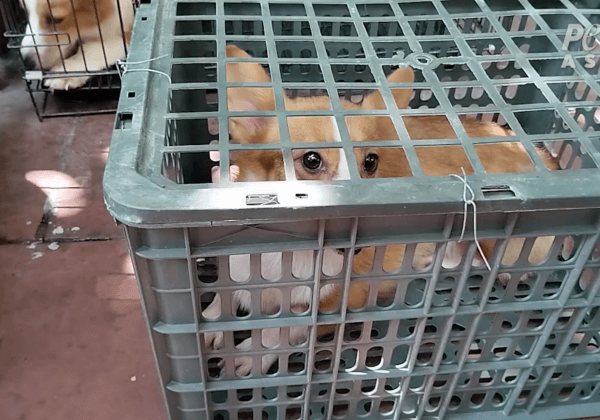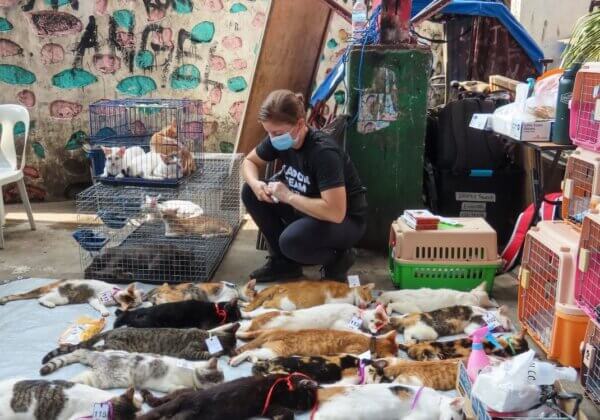Clover’s Story: Adopting an Older Animal
Clover was already well into her twilight years when she was rescued from being butchered and taken in by The Philippine Animal Welfare Society (PAWS). She waited at the shelter for years while other dogs around her got adopted or were brought home to be fostered, but the shelter staff told me that they’d never even received an inquiry from anyone interested in adopting Clover.
I was mourning the loss of my favorite individual and constant companion, Grace, when I stumbled upon Clover’s picture on the PAWS website. (I still am mourning the loss of Grace.) I had already been thinking about welcoming another senior dog into my home, as one of the reasons that I was able to care for Grace so well amid my busy schedule was her calm demeanor and satisfaction with simple things, such as sleeping in her bed behind my desk at work. Because of my small apartment and hectic lifestyle, I knew I couldn’t take on a younger dog who would need a lot of space and exercise, but I also knew I could offer a dog a lot—including an indoor life with frequent pee breaks, constant companionship (Grace came to work with me, as does Clover), and, of course, weekend trips to the park!
And so Clover came into my life. I originally decided to foster her to ensure that she would be comfortable with coming into the office every day, but within the first 48 hours, it was clear: Clover was staying. She is almost blind and struggles with hearing, too. The staff members at the shelter don’t think she has much time left, but I’m happy that she’ll get to spend the remainder of her life with me. Despite her impairments, she is extremely placid and loves attention. She even does a little butt dance when you scratch the base of her tail and frequently drops to the floor for belly rubs. In less than a week, she had already adjusted well to the office and my apartment, memorized our walking routes, and gotten the hang of housetraining.



You should allow for an adjustment period when bringing any new animal—old or young—into your life. But here are some tips that I have found are specifically helpful for older animals:
- Routine, routine, routine: Helping animals know what to expect is important for making their adjustment easy. Since Clover is almost blind, I was careful to keep our walking routes the same each time. I also take her out and feed her at the same time each day.
- Housetraining: Not all animals are housebroken when you adopt them (although you might get lucky!). Some might have learned this rule before but changed their behavior in a shelter environment. Remember that not all dogs are the same! Grace took six weeks to learn not to go to the bathroom inside, whereas Clover took only two days. Along with ensuring that they have access to the outdoors frequently, the key is positive reinforcement—and lots of it. Never scold dogs for going to the bathroom indoors. Simply praise them lavishly when they do go outdoors. They’ll catch on quickly!
- Patience: Clover walked very slowly the first day that I took her to the office—what is normally a 15-minute walk took almost an hour! But every day, as she familiarizes herself with the route more, she walks a little bit faster. Patience is crucial for allowing a new animal to adjust to your life.
There are many advantages to adopting an older dog from a shelter, and Clover is proof of that! They may already have basic obedience skills, they are generally content with a laid-back lifestyle or a small apartment, and of course, they are even more grateful for getting a second chance at life and a forever home. If you are considering bringing a new animal into your life, please adopt an animal from your local shelter or rescue group. If you want a laid-back companion to match your lifestyle, an older dog or cat might be for you!
Posted by Ashley Fruno









